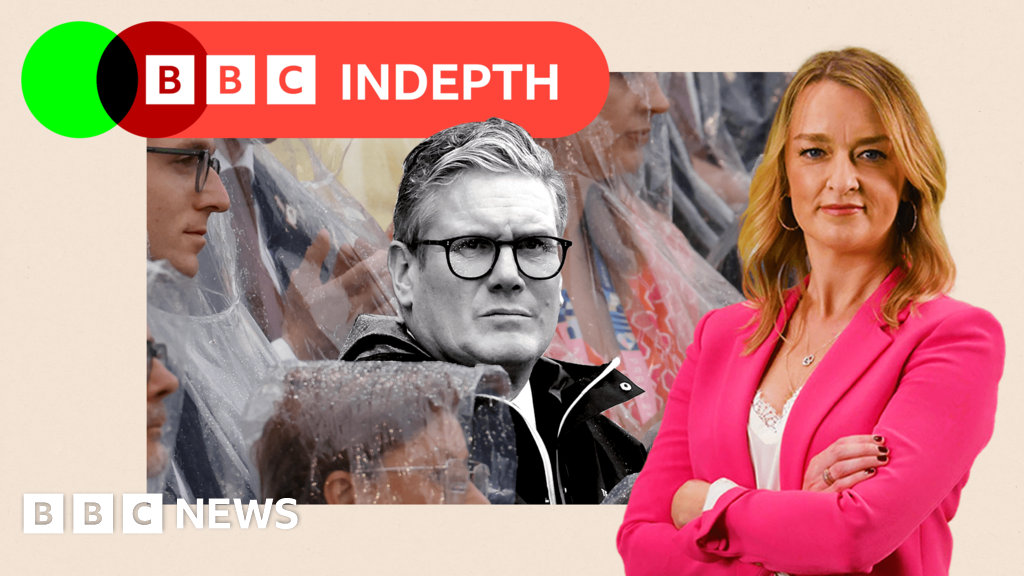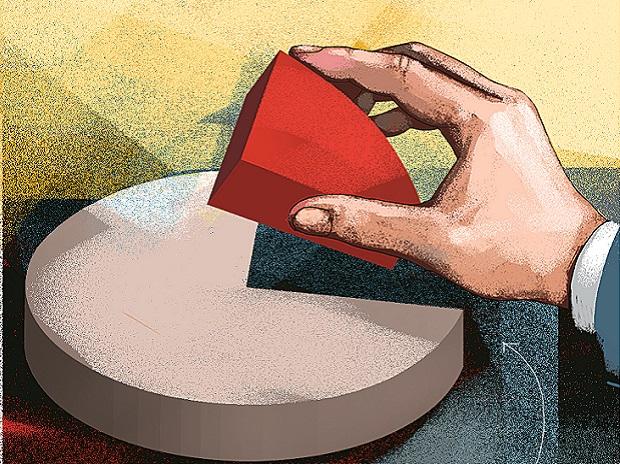 BBC
BBCNew pet? Tick – the Starmers have a new kitten. Switching the No 10 décor? Done – the PM had a portrait of Margaret Thatcher taken down. Cancelling the family holiday? That too, after riots spread in August. Kodak moments with other world leaders? The PM’s been to the White House and hosted a fancy international summit at a palace.
In two months Sir Keir Starmer has already completed numerous rites of passage for new prime ministers. This weekend there will be another: his first major TV interview in No 10, which we’ll bring to you tomorrow on BBC One and iPlayer at 09:00 BST.
But there’s one part of the job where there is an obvious, and deliberate, delay.
Every Downing Street administration I’ve covered has been stunned at how fiercely No 10 gets the blame for almost all of the country’s ills. This government is trying to stave that off for as long as possible by shouting from the rooftops: “It’s not us, guv!”
You shouldn’t be surprised. The clues were in the campaign, Chancellor Rachel Reeves repeating her mantra that, if victorious, Labour would receive the “worst economic inheritance since World War Two”.
Since taking power, the government’s message has been relentlessly focused on what they say is the dire state of the economy, the dreadful state of our prisons. A big review of the NHS is due, so prepare to hear about the terrible condition of parts of the health service, too.
They’ve been blaming the Tories as much as humanly possible. As one senior government source told me: “I’m prepared for people to get sick of hearing about the inheritance from the Tories.” And in case you didn’t feel a bit depressed already, in his first big speech of the new political season, Sir Keir told us things might get even worse.
Prime miserable, as well as prime minister?
 Getty Images
Getty ImagesThere are good political reasons for being so overtly glum. It’s “where the public is”, another government insider explains, and has the advantage of being “broadly true” (more on that in a sec). It warns voters about hard decisions the government is about to make while hammering the concept of the “£22 billion black hole” in public finances into voters’ minds.
Party strategists explain that this is a phase in a long-term political plan. First, shout about the wreckage and deliver the painful consequences they have chosen in the Budget next month. Next, early in 2025, start to talk more about benefits the government hopes to start delivering – those ”first steps” Sir Keir promised in May (remember them?).
And then the hope – yes, of course they have thought this far – is that as the next general election approaches, they can prove the hard yards of 2024 and 2025 were worth it. That the country is improving, public services boosted, and you feel better off.
Given that the Conservatives were in charge for 14 years, it is not just politically convenient for Labour to blame them for the country’s problems, but legitimate – to a great extent. Labour has not yet had 100 days in office, the Conservatives had nearly a decade and a half.


But it’s also true that from the moment any government takes charge, their decisions matter. Part of the “£22 billion black hole” that Labour loves to mention is £9 billion public sector pay rises – above inflation – that it has decided to grant.
Insiders are encouraged, telling me that the £22 billion number is starting to be repeated back to them in voter focus groups. But you can read more about exactly how they get to that total here.
Then there is the first big political row of the autumn – new ministers’ decision to remove extra fuel bill help for most pensioners. It’s highly emotive to target the first cut at pensioners, and Downing Street would have been well aware that the decision to take away winter fuel allowance would cause an almighty row.
Labour is trying to say their hand’s been forced because of the state of the books. But to govern is to choose.
Unsurprisingly many of Labour’s own MPs are deeply anxious about the plan, which will be tested in Parliament this week. The question is, when the temperature drops in winter, will pensioners who lose out look at the thermostat and think, those blasted Tories?
Or by then will they feel, instead, the government’s taken some of my cash away?
It is only 65 days since Labour won the election. Sir Keir’s team doesn’t know for how long voters, en masse, are willing to give them the benefit of the doubt – or at least a measure of it.
Those who work closely with the new PM say the job suits him far better than being leader of the opposition. He can now get things done, not merely criticise and judge.
Yet his own personal ratings have fallen since taking the role he craved. Despite their huge majority, Labour has taken over when many voters are fed up with politicians. They never expected a jubilant welcome.
Those close to Starmer believe they’d rather over-do the gloom in these early stages than create hopes among the public that are then dashed. Both Tony Blair and Gordon Brown saw a jump in approval ratings when they took the reins – before things started to go wrong.
Keir Starmer’s team want to be able to tell their own story – that they inherited a broken economy, a broken country, and ultimately managed to turn it around – but politics doesn’t always follow a Downing Street script.
His speech in Downing Street, then the Rose Garden moment a couple of weeks ago, the speech coming in a few weeks at the Labour’s party conference, then the Budget – the short-term pain they’re setting out may not find willing ears among the public.
And those big set piece moments may be overshadowed by real-world events. The reflexes of those in charge when the unexpected happens often define governments more than carefully conceived strategies.
It’s still a very new administration. For all the preparation they did before the election, the Labour top brass are now realising how quickly time passes when you’re in power. One minute you’re exhausted from 18-hour days campaigning, the next moment you’re ushered into Downing Street and getting a bacon sandwich, a coffee, and a terrifying security briefing from the Civil Service.
Power changes hands immediately. Responsibility and blame might transfer more gradually. But shift they will.
This new government is working hard to link the problems of the country to Tory failures.
But however loudly Labour protests about its genuinely challenging inheritance; however many times ministers point out, in evermore minute detail, what has gone wrong, the march of events moves irrevocably to a moment when blame or credit is for them.
BBC InDepth is the new home on the website and app for the best analysis and expertise from our top journalists. Under a distinctive new brand, we’ll bring you fresh perspectives that challenge assumptions, and deep reporting on the biggest issues to help you make sense of a complex world. And we’ll be showcasing thought-provoking content from across BBC Sounds and iPlayer too. We’re starting small but thinking big, and we want to know what you think – you can send us your feedback by clicking on the button below.
Note:- (Not all news on the site expresses the point of view of the site, but we transmit this news automatically and translate it through programmatic technology on the site and not from a human editor. The content is auto-generated from a syndicated feed.))




